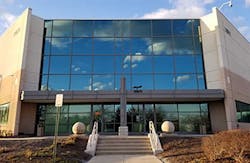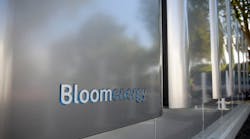Evoque Launches Colocation Business With Former AT&T Data Centers
There was a time when data center companies started out in a single market, perhaps with a single facility. Not so for Evoque Data Center Solutions, which launched this week with a fleet of 31 data centers across the globe and 1,100 enterprise customers.
Evoque is the new brand for a portfolio of AT&T colocation data centers that was acquired by Brookfield Infrastructure Partners for $1.1 billion. The deal, which was announced last June and closed on Dec. 31, represents the latest effort to create a data center platform from assets being shed by a large telecom player.
It also illustrates how well-heeled new investors are making it easier to launch new companies in an industry known for its high barrier to entry.
To manage the new company, Brookfield has tapped industry veteran Tim Caulfield, who has held leadership roles at Exodus, Cable & Wireless, Savvis and American Internet Services. Caulfield has brought along the executive team from his consultancy The Antara Group to launch and operate the Evoque business.
“This is a very exciting day for both our customers and employees,” said Caulfield. “We’re now a global company, and we are absolutely motivated to grow around the world. We are committed to delivering the top-tier service that our colocation customers around the globe have experienced with AT&T, and we will continue to provide the same access to premium data centers and networking services – including security, cloud networking and mobility – that our customers have come to expect.”
A Global Footprint
Evoque will focus on the enterprise colocation market, seeking to build on the 1,100 customers it acquired from AT&T. It will operate 31 data centers across 11 counties, including 18 in North America. The new company will own and operate the assets and customer contracts, and the employees supporting the colocation operations will continue with Evoque.
The U.S. data centers are in Boston, New York/New Jersey, Northern Virginia, Atlanta, Chicago, Dallas, Phoenix, Los Angeles, Irvine, San Diego, Seattle and San Jose. International locations include London and Redditch in the UK, along with Amsterdam, Frankfurt, Paris, Bangalore, Hong Kong, Shanghai, Singapore, Tokyo and Sydney.
“The good news is that we’re in all the top 10 data center markets,” said Caulfield. “The bad news is that so is everyone else. We will have to establish ourselves.”
“The good news is that we’re in all the top 10 data center markets. We will have to establish ourselves.”
Tim Caulfield, CEO of Evoque
The first step is retaining existing customers, an initiative that is off to a promising start, according to Caulfield, who traveled with his team around the country to meet customers.
“We’ve had some great conversations with clients, and the customer base is excited and happy to have us,” he said. “They like the fact that we’re not a $190 billion company. The fact that I’m the CEO and am talking with them makes an impression. Our team has a ton of knowledge and a ton of passion.”
AT&T will continue to deliver network services at the facilities, but Evoque is already working to add more providers and create a more robust carrier-neutral ecosystem. “We’ve gotten very good reception from carriers,” said Caulfield. “Some of that (additional connectivity) will start immediately.”
Investing in the Future
The AT&T assets were on the market for some time, and most of the data centers are 10 to 12 years old. Caulfield says the facilities are well-architected, and similar to many of the data centers sold by leading telecom players in other recent deals, including Cyxtera’s $2.8 billion deal to buy the CenturyLink colocation business, and the sale of 24 Verizon data centers to Equinix for $3.6 billion in 2017.
“Even though the data centers are older, they’re still high quality facilities and relevant to the market,” said Caulfield. “We’ve made some assumptions about how much capital we’ll need to invest over a six- to 10-year horizon.”
In the previous deals for telecom facilities, the acquirers have focused on strategies to add value, whether it be security (Cyxtera) or an interconnection ecosystem (Equinix). Caulfield said Evoque is thinking along similar lines.
“We’re looking at investments to take these data centers to the next level,” said Caulfield. “What kind of automation might we contemplate? What about high-density?”
New Focus for Brookfield
It helps to have the backing and financial strength of Brookfield Infrastructure Partners (BIP), an infrastructure fund that seeks returns over a long asset life in sectors like utilities, transportation and energy. Data infrastructure is a new focus area, and the AT&T asset purchase marks Brookfield’s entry into the U.S. data center market. In 2018 BIP also partnered with Digital Realty to acquire the Ascenty data center business in Brazil, a market where Brookfield has extensive experience.
“As infrastructure investors, they take a much longer horizon, which gives us more time to grow,” said Caulfield.
Evoque could be a player in the wave of mergers and acquisitions in the data center sector, using the AT&T assets as a platform to build for the long term.
“Our focus is on organic growth, but we’re also looking at M&A and see that as an important part of our growth,” said Caulfield. “We will certainly entertain opportunities for bolt-on acquisitions.”
About the Author


